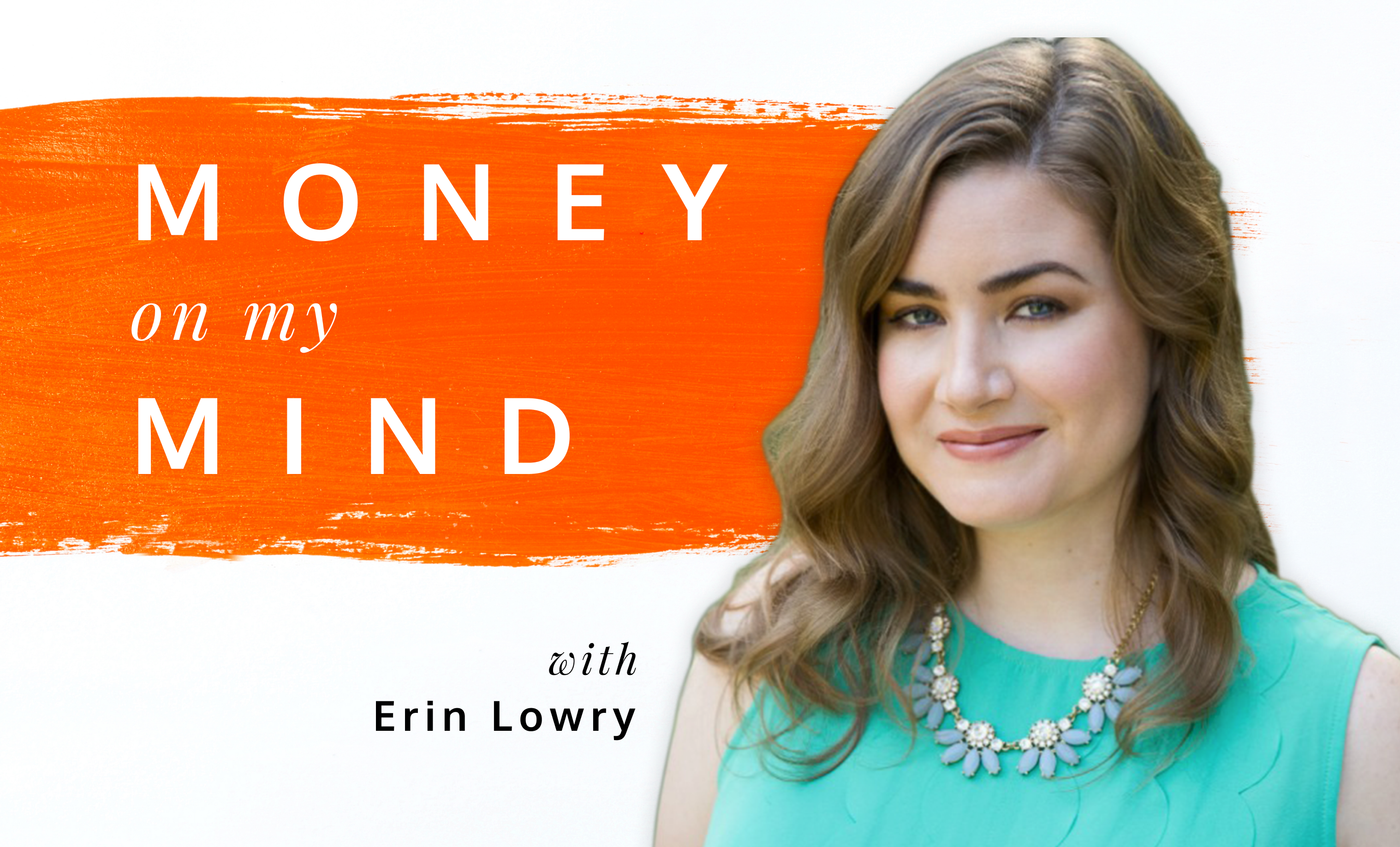Welcome to Money on My Mind, where our advice columnist Erin Lowry — a personal finance expert and author of Broke Millennial — helps solve your money conundrums. While we don’t hear enough about it, there’s a critical connection between our financial well-being and our whole human well-being. Money is a top cause of significant stress for Americans, and unchecked stress levels have been linked to issues from heart disease to diabetes to depression. Read on for advice on how to take control of your financial and overall health, one small step at a time.
Q. With coronavirus shattering the economy, I’m afraid to even look at my 401(k), knowing the steep dip it has taken. I’m really stressing out about it. Help!
A. If you’re afraid to see where your 401(k) stands right now, here’s my advice: Don’t look! I know that might sound crazy, but looking at your portfolio might do more harm than good in this moment because it could trigger an impulse decision. Trust me, my retirement investments dropped about $10,000 in the first week, and it certainly hasn’t gone up, so I get the gut-punch feeling many of us are experiencing. However, selling your investments in a panic or halting your contributions entirely are two of the worst moves you can make.
Simply remembering that these lows are a natural part of the economic cycle may help keep you from stressing too much during this time of uncertainty. Political events, terrorist attacks, natural disasters, and health scares are all reasons the market has taken a hit in the past. And every downturn or even crash in history has been followed by a rebound that surpassed previous market highs.
Keeping that in mind — along with the must-knows below — can help you come out of this with your sanity and your 401(k) intact.
The trading halt is just a pause
If you’ve been keeping up on the news that trading has halted three times (so far) since the coronavirus outbreak, you might think having your retirement funds tied up in stocks is a terrible idea. But that’s not necessarily the case. You know when you get into a big fight with someone and just need to walk away and take a brief break because you don’t want to say something you can’t walk back? That’s the thinking behind these stock market “time-outs.” These trading halts (that can last 15 minutes or a day, depending on how much stocks drop) are known as “circuit breakers” — and they were originally put in place by the Securities and Exchange Commission (S.E.C.) after the stock market crash in 1987. Basically, if a large enough drop on an index (a measurement of the stock market) occurs, a break is triggered to allow for some breathing room and reflection — and reduce panicked selling among investors.
You haven’t actually lost anything until you sell
Technically, you don’t “lose money” until you actually sell your investments. That’s why selling when your investments are going down is known as “locking in your losses.” Of course there are times when you want to bail out, but that’s usually only when you’ve bought individual stocks in companies that are going under. When you’re invested in index funds, mutual funds, exchange traded funds (E.T.F.s) in a retirement account, it’s a different situation because you’re invested in a bundle of different assets, so it helps reduce your risk if one company (or many companies) stop performing well.
Know your “time horizon”
One of the first rules of investing is to be aware of your goals. In the case of your 401(k), the goal is to have enough money invested for you to retire. That’s a goal that is decades away for many of us. In other words: Time is your friend because it allows you to weather (and even take advantage) of the dips in between the peaks. (In the financial world, the length of time you have until you need the money you’re investing is known as your time horizon. Your time horizon informs how much risk you can put on your money.)
Of course, as you get close to retirement, it’s important to reduce risk on your investments (this is called “rebalancing your portfolio” in investment jargon). You don’t want to remove all the risk, but you probably don’t want 70% or 80% of your 401(k) dollars tied up in stocks at that point. What we learned from the 2008 stock market crash is that people who were a year or two away from retirement but still had most of their money in stocks (higher risk) instead of bonds (more conservative investments) or even cash in their savings accounts were really hit hard; as a result, they had to delay retirement to allow their portfolios to rebound.
Keep contributing — with one caveat
You don’t want to be the person that misses out on the upswing after a market crash. The first step is to not pull your money out. The second step is to keep those automated contributions going (and if they’re not automated, make them automated so you don’t have to log in and see the scary numbers… at least until things stabilize).
That said, some real talk: A big concern related to the potential of a recession is job loss. You need to have a solid emergency fund of six months of bare-minimum living expenses, especially if you’re in a job that would likely get downsized in a recession. This is true even if you’re carrying student loans. So if you don’t have an emergency fund, building up that nest egg may need to take priority over contributing to your 401(k). But before you reroute your retirement funds into your savings account, look critically at your budget (and if you don’t have one, try pulling two months of bank and credit card statements to get familiar with where your money is going). See if there’s another way to free up some money to sock away in savings or earn more by picking up a (remote) side hustle.
Beware of fear-inducing headlines
There’s an old adage in the media: “If it bleeds, it leads.” And when a major shake-up is happening in the markets, the financial media will use the most inflammatory headlines to get more eyeballs and clicks. Take one recent headline for example: “Dow’s nearly 1,600-point plunge marks its biggest one-day point drop ever.” While technically true, language such as “worst dip in history” invokes fear that isn’t necessary or even helpful. The lesson? Protecting your emotional well-being may require putting boundaries around the news you expose yourself to and unsubscribing from some alerts and updates you have set.


